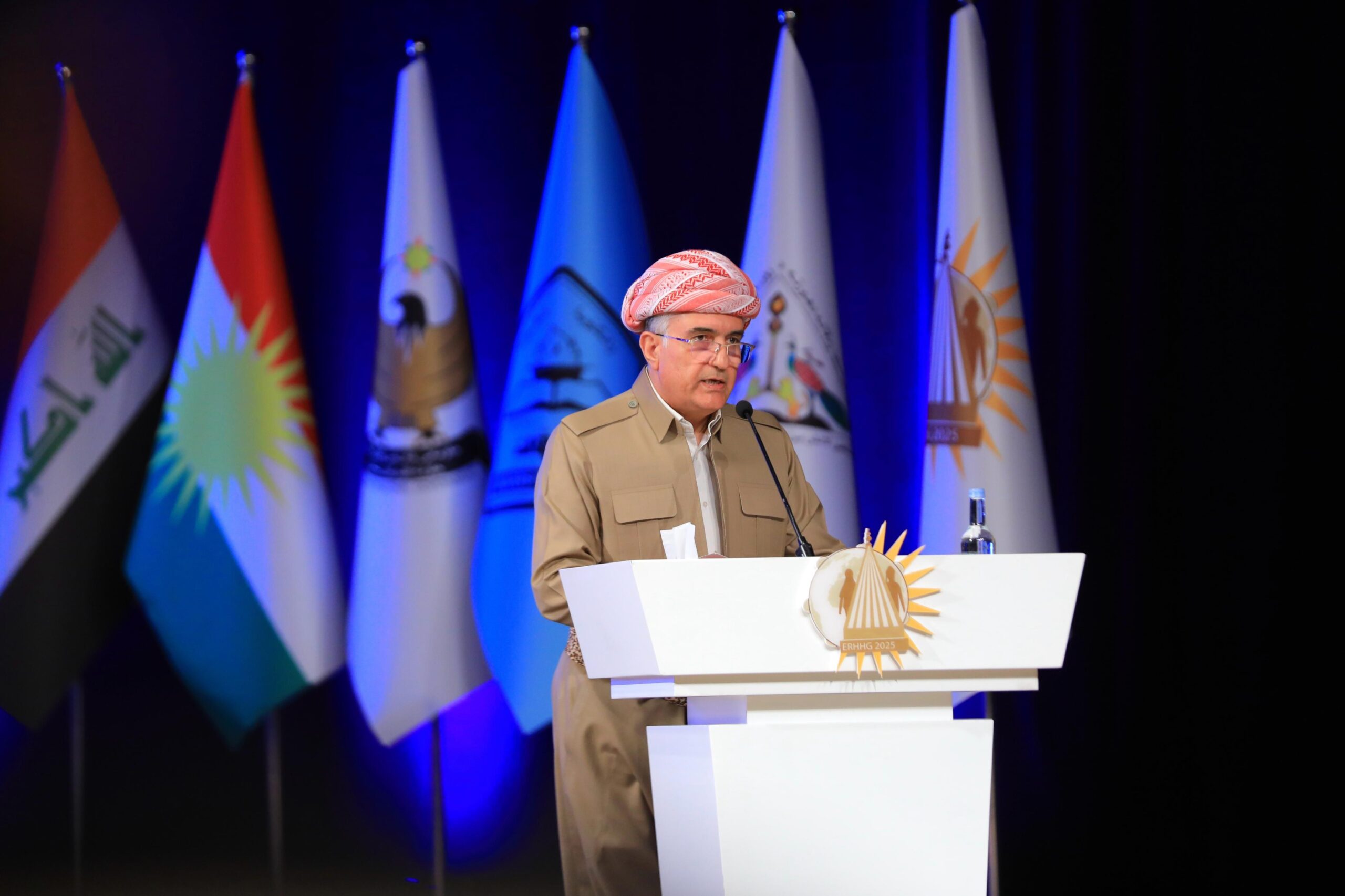Sema
KRG Interior Minister Rebar Ahmed reaffirmed the government’s commitment to fully implementing the Sinjar Agreement during the opening of the First International Scientific Conference on Yazidis in Duhok on Tuesday.
In a powerful and symbolic reaffirmation of Kurdistan’s enduring support for the Yazidi community, Rebar Ahmed, Minister of Interior of the Kurdistan Regional Government (KRG), underscored the KRG’s firm commitment to the full implementation of the Sinjar Agreement. His remarks came on Tuesday during the opening of the first International Scientific Conference on Yazidis in Duhok.
The two-day conference, held under the supervision of KRG Prime Minister Masrour Barzani, brings together scholars from 11 countries to explore the history, religion, culture, and geography of Yazidis.
Representing the Prime Minister, Minister Ahmed described the event as “very important,” and used the occasion to deliver a broader message of historical recognition, justice, and political responsibility.
In his speech, Minister Ahmed paid tribute to the deep roots of Yazidism within Kurdistan’s cultural fabric. “Yazidism is one of the ancient religions of Kurdistan, and the roots of Yazidism date back thousands of years,” he declared, adding that Yazidi beliefs, practices, and traditions form an “inseparable part of the Kurdish people’s identity” and enrich “the broader tableau of human civilization.”
Recounting the tragic fate of Yazidis at the hands of the Islamic State (ISIS), Minister Ahmed noted that the group’s 2014 attack on Sinjar will forever be remembered as “a black mark in human history.” He reported that 6,417 Yazidi Kurds were kidnapped during the assault; to date, 3,570 have been rescued, while 2,646 remain missing. He thanked the international community for recognizing these atrocities as genocide, acknowledging the destruction of centuries-old Yazidi temples and entire villages, and the widespread capture and abuse of women and children.
Minister Ahmed praised the swift response of the KRG in the face of the ISIS onslaught. “In the early hours of the terrorist attack on Sinjar, the Kurdistan Regional Government responded to the Yazidis’ call for help. Peshmerga forces, with unparalleled bravery, fought to defend and liberate Sinjar and its surroundings,” he said. “Many Peshmerga heroes sacrificed their lives for the sacred land of Sinjar, and that sacrifice will forever remain in everyone’s hearts.”
Turning to the future, Minister Ahmed stressed that liberation alone was not sufficient. “Revitalization, reconstruction, and the dignified return of Yazidis to their homeland, for the sake of a just future, is very important,” he stated. At the heart of this vision lies the Sinjar Agreement, signed on October 9, 2020, in Baghdad by then-Iraqi Prime Minister Mustafa Al-Kadhimi and KRG Prime Minister Masrour Barzani, with the support of the United Nations.
“The Sinjar Agreement is one of the tools for sustainable stability,” Minister Ahmed explained. “It aims to remove militias and illegal armed groups and to restore legal authority, security, and normalization to the area.”
While reaffirming the KRG’s readiness to fulfill its obligations under the accord, Minister Ahmed called on the federal government in Baghdad to assume its share of responsibility. “We want to see Sinjar administered by a legitimate local administration and protected by legal forces,” he stressed.
The conference, which continues through Wednesday, not only elevates Yazidi history and identity within global academic discourse but also serves as a stage for renewed political commitments. Minister Ahmed’s remarks encapsulate the dual message of cultural pride and political will—acknowledging past wounds while charting a course toward justice, restoration, and lasting peace for the Yazidi people.

